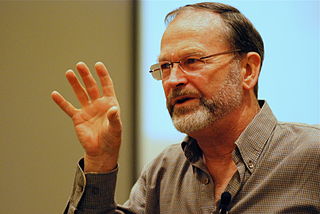Цитата Джеффри Сакса
Если бы мы вступили в рецессию, что всегда возможно в США или Европе, мы могли бы снизить процентные ставки и увеличить денежную массу, не беспокоясь о цене на золото.
Связанные цитаты
Бывают времена, когда такие рынки, как жилье, транспорт, фондовый или ипотечный рынок, продолжают расти, и люди с капиталом хотят присоединиться к этому росту. Вскоре рынки становятся перегретыми, отчасти из-за обилия инвестиционных денег и спекуляций. Это когда правительство должно поднять процентные ставки и увеличить стоимость заемных денег. Правительства стесняются этого делать, потому что это может вызвать саму рецессию. Тем не менее, это лучшее время для того, чтобы неизбежная рецессия никогда не достигла масштабов недавней Великой рецессии.
Когда у вас есть золото, вы боретесь со всеми центральными банками мира. Это потому, что золото является валютой, которая конкурирует с государственными валютами и оказывает сильное влияние на процентные ставки и цену государственных облигаций. И именно поэтому центральные банки долгое время пытались подавить цену на золото. Золото — это билет из системы центрального банка, спасение от принудительного центрального банка и государственной власти.
Золото не менее, а более рационально, чем бумажные деньги. Деньги имеют ценность, пока их предложение ограничено; золото всегда будет в ограниченном количестве, и для его добычи потребуются реальные ресурсы даже из моря; бумага и типографская краска не ограничены в поставках. Золотая система гораздо ближе к современной автоматической системе научного контроля, чем грубая и относительно нестабильная бумажная система.
Проблема сейчас в том, что центральные банки не нормализовали свой баланс с 2009 года. Они пытаются, но это даже не близко. Если бы завтра у нас был еще один кризис, и вам пришлось бы проводить QE4 и QE5, как вы могли бы это сделать, когда у вас уже есть 4 триллиона долларов? Возможно, им придется обратиться к МВФ, СПЗ или золоту. Затем, если вы вернетесь к золотому стандарту, вы должны установить правильную цену. Люди говорят, что золота недостаточно для поддержки золотого стандарта. Это чепуха. Золота всегда достаточно, вопрос только в цене.
Это один из фундаментальных принципов фондового рынка: когда процентные ставки растут, акции падают. И наряду с финансовыми компаниями и циклическими акциями, технологические компании с их заоблачными мультипликаторами цены к прибыли должны оказаться в числе самых проигравших в условиях роста ставок.




































